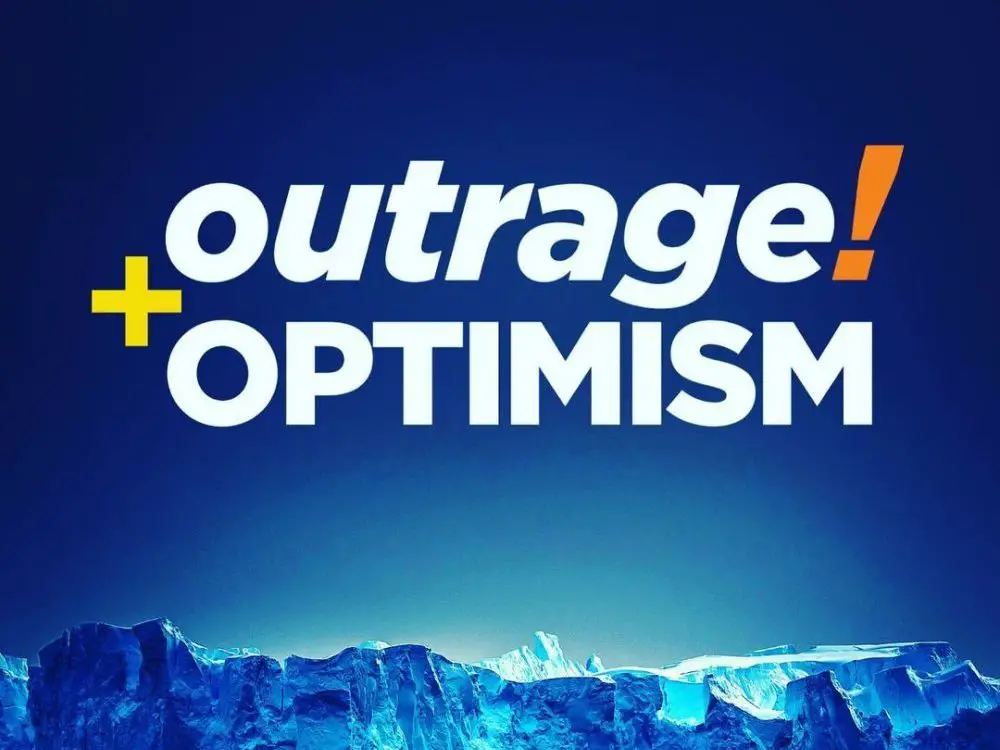“Outrage and Optimism” is a podcast that began in April 2019 and it is currently in its second season. It is hosted by Christina Figueres, Paul Dickenson and Tom Rivett-Carnac, who were all instrumental in the establishment of the 2016 Paris Agreement.
Figueres was appointed executive secretary of the UN Framework Convention on Climate Change in 2010 (UNFCCC). She has doctorates at three universities and has won several awards, including the 2019 Dan David Prize for combating climate change.
Dickenson is the co-founder of CDP, a “not-for-profit charity that runs the global disclosure system for investors, companies, cities, states and regions to manage their environmental impacts.”
Last but not least is Rivett-Carnac, who is a political lobbyist for the UNFCCC as well as an author of climate change policy. Additionally, he and Figueres collaborated on a book, “The Future We Choose: Surviving the Climate Crisis.” Figueres and Rivett-Carnac are both founders of Global Optimism, the organization behind “Outrage and Optimism.”
The podcast itself asks the listener to “face the climate crisis head-on but understand that we have the power to solve this.” It describes itself as a “podcast about issues and politics [that] will inform you, inspire you and help you realize that this is the most exciting time in history to be alive.”
Episodes of the podcast generally begin with a summary of what has made them either outraged or optimistic in the climate debate, followed by an interview. Some of the most prominent interviewees include Prince William, David Attenborough and Ellie Goulding as they discuss the importance of balancing anger about the state of the planet with hope for the future. “Outrage and Optimism” has interviewed many other important thinkers, as well as garnered multiple awards.
Greta Thunberg
This Swedish activist Greta Thunberg talked to Christiana Figueres for “Outrage and Optimism” in Davos at the World Economic Forum in 2019.
This episode discusses how Thunberg started the school strike movement in 2018. She wrote an article and got contacted by a climate activist group for young people, and she participated in video calls with them every week. Inspired by the strikes over school shootings in the U.S., she wanted to adapt this approach and sit outside parliament with a sign. The group wasn’t interested in this idea, so she decided to do it alone. Journalists interviewed her and she garnered attention, so by the second day others joined her.
At one point over 200 people turned up to accompany her, from children to 89-year-olds. She tells Figueres that she started the school strikes because “Why should we study for a future that is being stolen from us?”
In the interview, Thunberg mentions that she started striking at just the right time: “People are slowly starting to wake up… if I’d done it a year before people wouldn’t have listened,” which seems right. Mainstream climate activism has only recently rose to prominence.
Thunberg very much seems in line with the Outrage section of the podcast, with very little Optimism. She expresses her frustration that people in power “have had access to all this information for a very long time and have chosen to look away and do nothing.” Figueres expresses sadness at how hard it is to make Thunberg adopt a more hopeful outlook alongside her sadness but is relieved that there are people like Thunberg in the world that are willing to use their voice to stand up and tell governments to do something.
David Wallace-Wells
David Wallace-Wells is a prominent American journalist known for his writing on climate change. In this episode, he discusses his book “Uninhabitable Earth” and the criticism he has faced for allegedly being too alarmist. The presenters of the podcast talk about how they have been criticized for being overly optimistic on the other end of the spectrum.
Most of the Wallace-Wells interview on “Outrage and Optimism” talks about the similarity between COVID-19 and climate change: “Climate is a prism through which all of life will pass” says David, and currently this seems to be the case for the coronavirus too. He points out that many people think that because of COVID-19, countries’ resources are too depleted to cope with the effects of climate change.
Countries along the equator are already suffering the impacts of global warming, and future generations from all over the world will suffer the consequences of the current inaction. The podcasters talk about how because of misinformation, a lot of people in America think there is a trade-off between economic growth and climate change prevention, which is not the case.
Awards for “Outrage and Optimism”
As the most popular climate change podcast currently, “Outrage and Optimism” has been featured on several chart lists — topping the UK politics podcast twice, reaching No. 10 all-time Podcasts on the Apple UK charts, No. 3 on the Apple Australia charts, No. 15 of the Guardian Best Podcasts of 2019, and it has been selected as the News and Politics Honoree in the 2020 Webby Awards.
“Outrage and Optimism” assumes that their audience is smart. They don’t over-explain things, but neither do they talk in hard-to-follow scientific jargon; ultimately, they manage to strike a good balance. The running theme of balancing anger and hope is a conflict that any environmentalist can relate to. Alongside educating the listeners and providing variety with many interesting interview subjects, they help the audience navigate the struggle between outrage and optimism.

















